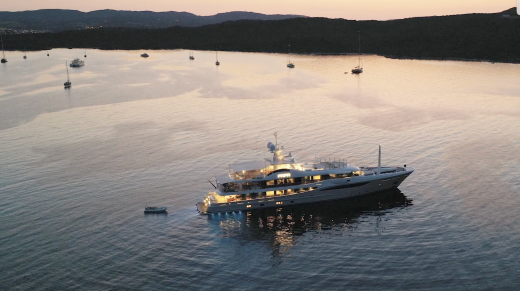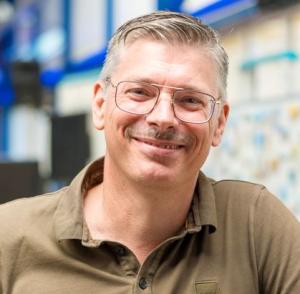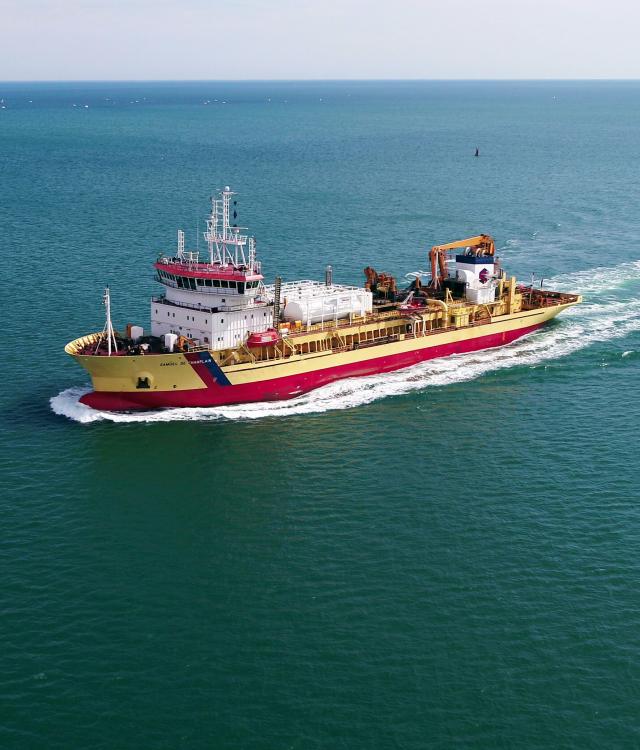Power conversion
In response to the ever-increasing need for sustainable operations, Alewijnse is at the forefront of designing environmentally friendly energy conversion and energy-efficiency systems for maritime and industry.
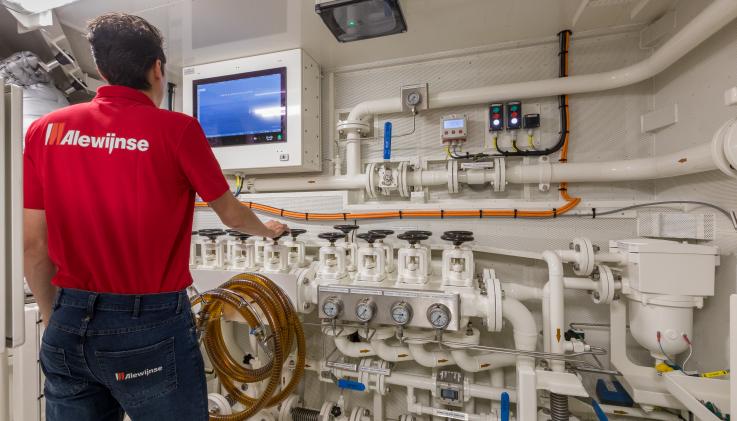
Integrating science, engineering, and design
Climate change and globalisation present significant challenges to the maritime and industrial sectors. The demand for environmentally friendly and energy-efficient solutions is greater than ever, with the aim of reducing CO₂ and NOₓ emissions and improving overall equipment effectiveness (OEE). Optimising the use of sustainable fuels and advanced energy systems plays a key role in this.
Aligned with our vision for sustainability, we are collaborating with top partners to develop cutting-edge energy conversion solutions. By integrating science, engineering, and design, we create applications that are directly applicable to a wide range of ships and industrial installations.
On this page, you will find everything about our latest developments in energy conversion, driven by innovation, digitalisation, and standardisation. Alewijnse is here for analysis, advice, and the implementation of the latest technologies, helping you face the future with confidence.
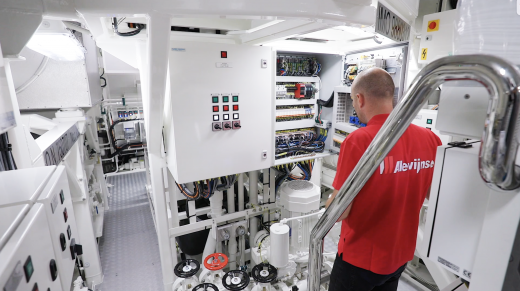
Hybrid energy solutions
Hybrid applications in the maritime industry cover a wide variety of disciplines. Dual fuel systems and battery storage for spinning reserve and peak shaving are becoming increasingly integral to the technical scope of modern fleets and are widely implemented in existing vessels. Solutions you can expect from Alewijnse in this respect include:
- Modeling, supply, and integration of energy storage solutions
- Modeling, supply, and integration of AC and DC grid electric propulsion drive solutions
- Design of power conversion control and monitoring systems
- Supply and integration of hybrid fuel power management systems
- Battery sizing
- Hybrid grid AC/DC optimization for newbuilds
Power quality measurement & analysis
In marine power plants power quality is essential. AC grid can be disrupted by harmonic distortion that needs to be measured, analysed and mitigated. EMC effects in DC grid can be much more severe than in AC grid power plants. Higher drive switching frequencies, combined with inadequate filtering and earthing measures, can result in poor fuel efficiency and reliability, increased generator maintenance, and excessive wear on connected semiconductors.
Alewijnse offers services to measure and analyze these effects in the time domain during the operation of existing vessels or during HAT and SAT of new builds. If required, we will provide an improvement plan as part of our recommendations to the customer.
Hardware-in-the-loop testbed (HIL)
State-of-the-art hybrid grid solutions need to be verified, preferably before starting a detailed engineering cycle. To establish proof of concept, Alewijnse builds the proposed hardware configuration in a model. This is done on a real-time software-based platform that allows all studies and requirements of the design to be tested and verified in the time domain.
In addition to HIL functionality test runs and verification, our model can also derive short circuit currents and fuse selectivity tests. This process creates a safe and sound proposition for the client while shortening the lead time of our engineering phase.
HIL offers our clients solid, evidence-based engineering, assists in studies, and automates essential parts of our engineering disciplines. If your project requires HIL modeling, you can contact us for a consultancy-based proposal. Our consultancy fee is reimbursed when the project is granted, as it becomes part of the basic engineering.
Return of investment (ROI) calculations
A hybrid solution is only effective when supported by thoroughly charted power flow analysis. The operational profile with its specific requirements determines the optimal solution. Alewijnse uses mathematical calculation models to analyze big data and visualize selected power events, ensuring hybrid optimization in sizing and type.
Our maintenance component is included in our Pareto analysis to provide the best possible proposition to our customers. Our results include return on investment (ROI) prognoses, fuel savings, installed footprint, and maintenance effects, all clearly presented in our recommendations.
We also offer feasibility studies on a consultancy basis to asses the feasibility of hybrid solutions for a single vessel or even an entire fleet.
If your project requires ROI calculations, you can contact us for a consultancy-based proposal. Our consultancy fee is reimbursed if the project is granted, as it becomes part of the basic engineering.
Partnership with TU Delft
Since 2022, Alewijnse has provided and co-supervised two master's theses annually for the Faculty of Intelligent Electrical Power Grids (IEPG) at TU Delft. Collaborating with students in their graduation year, Alewijnse researches and develops mathematical calculation models, analysis modeling, and hardware-in-loop emulations. This partnership strengthens our engineering department, fostering peer-to-peer learning and the application of advanced tools.
Many graduates begin their professional careers at Alewijnse, leveraging their state-of-the-art knowledge to provide practical support to our engineers and customers.
Lightning protection solutions
One of the new trends in the yacht-building industry is the implementation of composite materials in vessel construction. This approach offers certain advantages that are not present when vessels are made solely of steel or steel hulls with aluminum superstructures. As a result, we can expect an increase in the production of composite or composite-steel vessels in the future.
However, the composite construction of these vessels is non-conductive. This means it cannot protect the people on board and essential electronic equipment from phenomena such as electromagnetic fields resulting from electrostatic discharges in the atmosphere. More information is available on the website and in the white paper concerning the Lightning Protection Solution.
Downloads.
